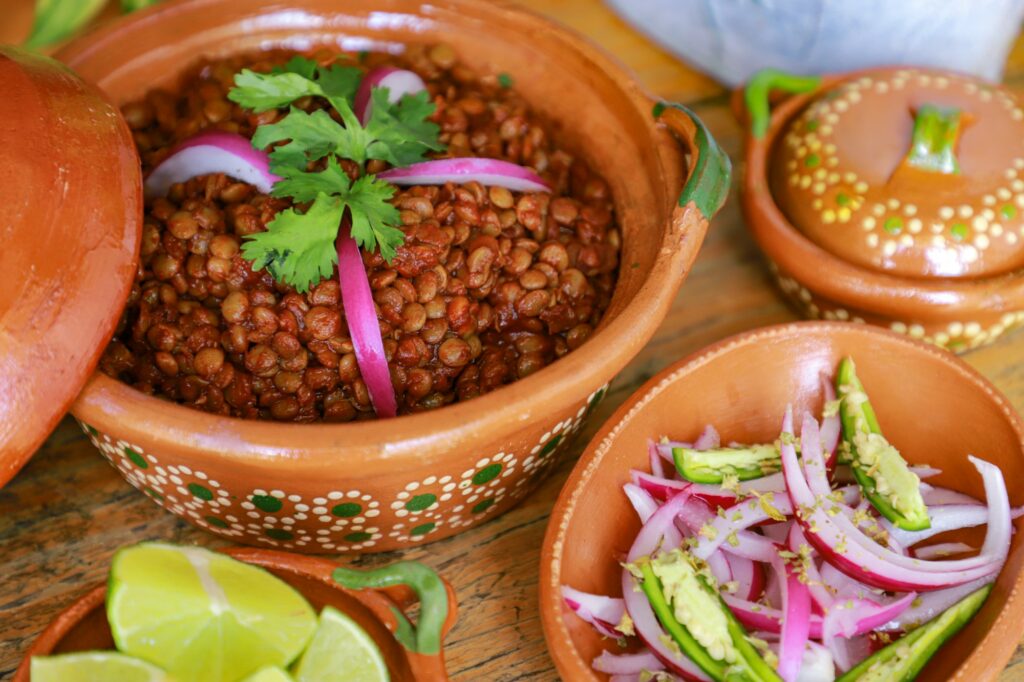20 plant-based foods rich in protein
Although a plant-based lifestyle is complete in itself, a common misconception is that it lacks sufficient protein. However, nutritionists claim that a well-balanced plant-based diet can easily fulfill daily protein needs. When consumed sufficiently, several plant foods such as soy and vegetables contain similar protein content as animal-based sources.
Here is a quick list of 20 plant- based foods that are rich in protein:
- Chickpeas
Cooked chickpeas are a great source of protein and contain up to 8.23 g of protein per 100 g. Also, the water that chickpeas are soaked in or aquafaba can be used as an egg-white substitute.
- Soy Beans
Popularly known as edamame, cooked soybeans contain 11.54 g of protein per 100 g, making them a rich source of protein.
- Broccoli and Cauliflower
Vegetables such as broccoli and cauliflower are rich in protein. A cup (about 100 g) of cooked broccoli or cauliflower contains about 2–3 g of protein.
- Chia Seeds
The perfect ingredient for a smoothie or a pudding, chia seeds are packed with protein. According to the USDA, 100 g of chia seeds contain 18.29 g of protein.
- Green Peas
Green peas contain 5.4 g of protein per 100 g, along with other nutrients such as minerals, vitamins and fibre.
- Hemp Seed
Hulled hemp seeds are a nutrient-rich nut replacement containing about 9.5 g of protein in 30 g or 3 tablespoons.
- Jackfruit
Often used as a plant-based alternative to meat, raw jackfruit has low protein content with approximately 2.8 g per cup. However, it is extremely rich in fibre content.
- Kidney Beans
A staple ingredient in the Indian diet, boiled kidney beans contain about 8.7 g of protein per 100 g.
- Mung Beans
Mung beans are often used in East Asian and Indian cuisine. About 100 g of boiled mung beans contain 7 g of protein.
- Lentils
A 100 g of cooked or boiled lentils contains 9 g of protein and approximately 8 g of fibre.
- Nutritional Yeast
Available in the form of flakes, nutritional yeast is an inactive strain of Saccharomyces cerevisiae containing approximately 5 g of plant-based protein per 1/4th cup (10 g).
- Nuts and Nut Butters
A handful or 28 g of nuts contain approximately 5 g of protein, making them an easy source of plant-based protein. Furthermore, nut butters contain a similar amount of protein content, for example peanut butter contains 3.5 g of protein per tablespoon.
- Oats and Oat Milk
One cup of cooked oat bran contains 7 g of protein, whereas 100 ml of oat milk contains about 1.25 g of protein.
- Plant-Based Meat
Plant-based meat or mock meat has now become an important protein source in a plant-based meal. A regular plant-based burger patty (for example the Impossible burger or Beyond burger) contains 19–20 g of protein.
- Quinoa or Amaranth
Pseudo-cereal quinoa is a protein-rich seed providing more than 8 g of protein per cooked cup.
- Seitan
Seitan is made using wheat protein or gluten and carries approximately 15–20 g of protein per 100 g, which is comparable to the protein content in animal meat.
- Soy Milk
Soy milk is the most nutritious cow-milk replacement, with one cup of soy milk containing 6.34 g of protein.
- Soya Chunks
Soya chunks are made of soy protein and contain 52 g of protein in an uncooked portion of 100 g.
- Sunflower Seeds
Sunflower seeds are a rich source of protein, with one cup of plain sunflower seeds containing up to 28 g of proteins.
- Tofu
Tofu is primarily made of soybeans and offers approximately 10 g of plant-based protein per 100 g of serving.
Increasing protein intake through these nutritional plant-based sources can help prevent deficiencies and incorporate animal-friendly and clean vegan foods into your diet.

Pledge to try veg

